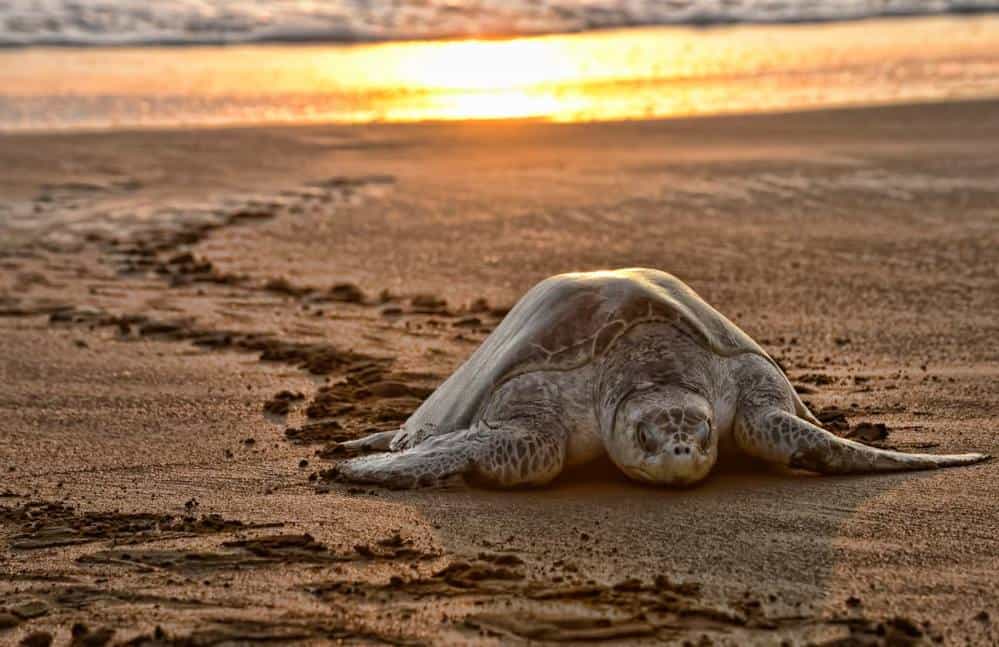A failed project that aimed to protect sea turtles has led to another disastrous discord between the provocative conservation group Sea Shepherd and the Costa Rican government.
After a month working on the Operation Jairo II campaign, volunteers were booted from Jacó beach on the central Pacific coast when authorities found the group was working without permits.
The group’s Central American spokesman Jorge Serendero told The Tico Times the turtle rescue campaign named after murdered Costa Rican conservationist Jairo Mora was meant to be “low profile,” meaning the government wasn’t supposed to be involved.
Authorities said they ordered Sea Shepherd to leave when they found the group hadn’t requested permits through the Environment Ministry (MINAE) or the National System of Conservation Areas (SINAC) to legally conduct conservation work on public beaches.
“In order to conduct this type of work you need to be registered and authorized by SINAC,” a spokesperson from the National Police said via email. “However, instead of completing the necessary procedures to comply with environmental law and regulate their situation, these people opted to not collaborate.”
Serendero said Sea Shepherd was told by Garabito police Chief Osvaldo Rodríguez that the permits were taken care of. “It was never official, it was just supposed to be a personal project,” Serendero said.
“The error we committed was by not making things clear from the beginning with the government,” Serendero admitted.
Sea Shepherd’s short-lived turtle conservation project — which, according to a 2015 news release, originally aimed to rescue sea turtles on infamous Moín Beach in Limón, where the project’s namesake Jairo Mora was killed, but which apparently was moved to the popular Pacific beach of Jacó — was supposed to help repair relations with Costa Rica.
Instead, the efforts have led to the latest turmoil in a long history of discord stemming from Costa Rica’s indictment over Sea Shepherd founder Paul Watson.
On September 23, Sea Shepherd published a news release on their website about the forced end to the Jacó turtle project, but the post has since been taken down. Serendero called his own group’s news release “erroneous” and full of “bad information,” adding that he never had communication with Operation Jairo II group leader María Cristina Cely, who was critical of the government upon Sea Shepherd’s departure from Jacó.
“Our presence has made a difference for these eggs and hatchlings, but now, thanks to mediocre minds we have to stop and the only ones who have everything to lose are the turtles,” Cely was quoted as saying in the Sept. 23 news release.
Cely declined a request for interview by The Tico Times.
Gerardo Chavarría, interim director of SINAC’s Central Pacific Conservation Area, told The Tico Times in a phone interview that the lack of permits was not the only reason Sea Shepherd was booted from Jacó’s shores.
He said Costa Rica’s open indictment against Watson makes it impossible for Sea Shepherd to work in the country. The country brought attempted shipwrecking charges upon Watson years ago for a 2002 incident off the Guatemalan coast.
“That legal process is still going on in the courts, so MINAE is not going to authorize any agreement with Sea Shepherd until that legal dispute is settled,” Chavarría said.
Watson remains on Interpol’s Red List for those charges.
Serendero maintains that Sea Shepherd has been working with the government to bring in a ship to monitor marine conservation and also do volunteer work at Cocos Island.
Specifically citing both cases, SINAC’s Chavarría said that neither of those projects will happen before Watson’s legal situation is sorted out.
Chavarría said MINAE has been in discussions with the National Police over the events in Jacó and the apparent behind-the-scenes deal the Garabito delegation had with Sea Shepherd. However, he could not comment on whether or not police Chief Rodríguez would face any legal consequences for allegedly brokering the deal without going through SINAC.
Rodríguez declined to speak to The Tico Times about the incident.
Despite the latest breakdown, Serendero said Sea Shepherd has a great future ahead in Costa Rica and that there are just a few “internal things to clear up” in the meantime.
“I knew that a lack of permits could present a problem, but I never imagined something this bad would happen,” he said.






